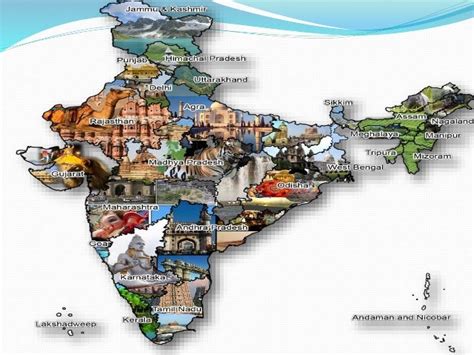The influence of English on the Bangla language has been profound and multifaceted, reflecting a history of colonialism, cultural integration, and modernity. From the British colonial period to the present day, English has left an indelible mark on Bangla, shaping not only its vocabulary but also its societal values. English has come to symbolize education, progress, and global connectivity in Bangla-speaking communities. As English terms become increasingly embedded in daily communication, the Bangla language evolves, reflecting a unique linguistic blend. This article explores the historical context of English’s introduction to Bangla, its role in cultural integration, the linguistic changes that have emerged, and the future trajectory of Bangla amidst ongoing English influence.
Come join solaviral.com in exploring this topic extensively.
1. Historical context: The introduction of English to Bangla through colonial influence.
The arrival of English in the Bangla language can be traced back to the colonial era, specifically during British rule in India. The British East India Company established itself in Bengal in the 18th century, bringing with it the widespread introduction of the English language. Initially imposed as the language of administration, education, and legal proceedings, English gradually permeated all levels of Bengali society. The establishment of English-medium schools and the introduction of English literature further solidified its influence. Bengali elites, recognizing the advantages of English proficiency, embraced the language, viewing it as a pathway to modernity, education, and upward mobility. This colonial imposition of English laid the foundation for its enduring presence in the Bangla language, influencing not only communication but also cultural identity. The integration of English into Bengali society during this period set the stage for the linguistic and cultural evolution that continues to shape Bangla today.

2. Cultural integration: English as a symbol of education and modernity in Bangla-speaking societies.
During the colonial era, English infiltrated Bengali society beyond its administrative function, transforming into a potent emblem of education and modernity. Proficiency in English became synonymous with intellectual prowess, social standing, and global engagement. Bengali elites, especially those residing in urban centers, recognized English fluency as paramount for thriving in a rapidly evolving world. English-medium schools and universities emerged as prestigious institutions, with fluency often serving as a prerequisite for higher education and government roles. This association with progress fostered a widespread embrace of English as a conduit for upward mobility and cultural refinement. Over time, English transcended its linguistic origins to represent not only a connection to Western knowledge and modern ideals but also a bridge between traditional Bengali values and the global community. This cultural integration profoundly shaped the identity and aspirations of Bangla-speaking societies, influencing generations of Bengali thinkers, writers, and educators.

3. Linguistic evolution: The incorporation of English vocabulary into Bangla language use.
The integration of English into Bangla-speaking societies spurred a notable linguistic evolution, primarily marked by the adoption of English words into everyday Bangla usage. This process, known as lexical borrowing, commenced during the colonial era and has continued to expand over time. Initially, English words were incorporated into fields like law, education, and administration, where Bangla lacked direct equivalents. However, this borrowing has gradually extended into more casual conversations, as English terms have become commonplace in discussions about technology, business, and popular culture.
The fusion of English words into Bangla sentences, resulting in the distinctive “Banglish,” is a common occurrence today. This linguistic blend reflects a combination of practical and cultural influences, with English often perceived as more precise or trendy in specific situations. Modern concepts like “computer,” “internet,” and “mobile” have become integral parts of the Bangla lexicon, leading to the evolution or replacement of some traditional terms. This linguistic intermingling underscores the dynamic nature of Bangla, continuously adapting to new realities while maintaining its fundamental identity. The ongoing integration of English into Bangla serves as a testament to the enduring effects of cultural and linguistic assimilation.

4. Impact on communication: The rise of code-switching between English and Bangla.
The integration of English into the Bangla language has resulted in a linguistic phenomenon known as code-switching. This practice, characterized by speakers seamlessly switching between English and Bangla within a single conversation or sentence, has become increasingly common, especially amongst younger generations and urban dwellers. This reflects the bilingual reality of modern Bangla-speaking societies. Code-switching is not confined to informal settings, but is also evident in media, advertising, and education, where a combination of English and Bangla is employed to reach a wider audience.
This linguistic flexibility enables speakers to express ideas more accurately or succinctly, often employing English for contemporary, technical, or internationally recognized terms and Bangla for more traditional or culturally specific concepts. Code-switching also acts as a marker of identity, revealing a speaker’s education, social standing, or global perspective. While some purists may perceive this intermingling of languages as a threat to the purity of Bangla, it is, in reality, a natural progression, mirroring the dynamic and adaptable nature of communication in a globalized world.
5. Future implications: The potential trajectory of Bangla language amidst continued English influence.
The enduring impact of English on the Bangla language prompts crucial questions about Bangla’s future course in an increasingly interconnected world. As English solidifies its position as a global lingua franca, the incorporation of English vocabulary, phrases, and linguistic structures into Bangla is expected to intensify. This trend, fueled by technological progress, global communication, and the widespread adoption of English in education and business, suggests that Bangla will continue to adapt in response to these external forces.
This evolution, however, presents a double-edged sword. While the integration of English into Bangla holds the potential to enrich the language, opening up new avenues of expression and fostering communication on a global scale, it also poses a risk. Overreliance on English could lead to the erosion of Bangla’s unique identity, particularly among younger generations who may gravitate towards English over their native language.
The future of Bangla hinges on a delicate equilibrium between embracing the advantages of bilingualism and safeguarding the language’s linguistic and cultural heritage. Promoting Bangla literature, media, and education will be vital in ensuring the language remains dynamic and relevant. As Bangla absorbs English influences, it must simultaneously assert its unique identity, adapting to contemporary realities while preserving its rich history and cultural importance.
The interplay between English and Bangla has profoundly shaped the linguistic and cultural landscape of Bangla-speaking societies. From its colonial roots to its modern-day influence, English has become an integral part of Bangla, reflecting both adaptation and identity. As Bangla continues to evolve, it faces the challenge of integrating global influences while preserving its unique heritage. The future of Bangla lies in balancing modernization with a deep respect for its cultural and linguistic roots.
solaviral.com